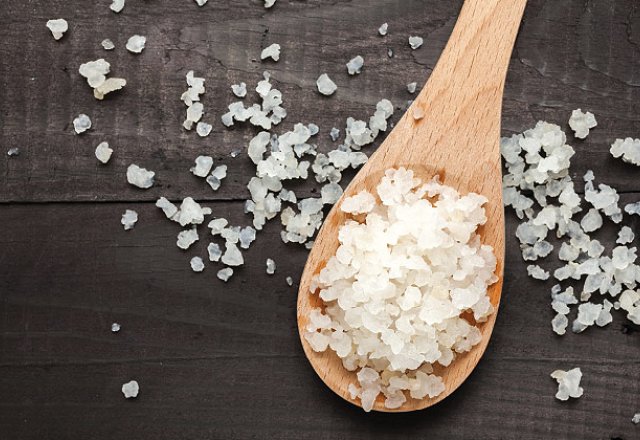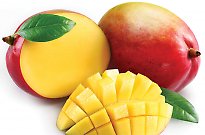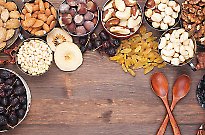
Health benefits of fermented foods

Probiotics are KEY
From kimchi to kombucha, fermented foods and beverages are finally becoming Western menu favourites thanks to their ability to foster good health from within, writes Shannon Dunn.
Not so long ago, the likes of coconut kefir, kombucha and raw sauerkraut were known as ancestral fare, kept from extinction in the Western world thanks to ‘New Age hippies’ with a passion for good health.
However, in the past five years, the understanding of what makes fermented foods so beneficial for the body is gaining momentum, with products such as coconut yoghurt even showing up on mainstream supermarket shelves.
Teeming with beneficial bacteria – or probiotics – fermented foods play an important role in the modern diet, which often includes empty calorie meals supplemented with antibiotics, which wipe out the body’s good and bad bacteria stores. Add to that a lifestyle of stress and excess, and the body begins developing signs of disease.
A belly in balance
While the popularity of the probiotic pill has grown, it’s from regular consumption of fermented foods that intestinal health returns to balance while helping foster clearer, healthier skin.
“The premise of fermented foods is that, while improving flavour, texture and enriching foods, they also provide us with beneficial bacteria,” says leading Australian iridologist and natural health practitioner, Will Shannon.
“Humans have been fermenting foods to aid digestion for as long as we can trace,” he says. “Every culture in the world has some form of fermented foods that are eaten with meals – usually they are used as condiments and provide proper enzymes to help break food down and make nutrients available for absorption in the small intestine.”
Shannon says one of the biggest effects a healthy bacteria can have on our health has to do with our immune system: Signals produced by natural intestinal bacteria are necessary for an effective immune response to various viral and bacterial germs.
Biotech scientist Christopher Pendlebury agrees, and says research has found that those who suffer from chronic inflammatory diseases and immune disorders have a “markedly lower biodiversity of gut flora than healthy individuals”.
“Such people need to consider their diet very carefully,” says Pendlebury, who makes fermented foods, such as sauerkraut, to manage his own intestinal flora.
“Without the support of symbiotes, many common foods can promote inflammation and aggravate their conditions, such as gluten-containing grains, eggs and dairy, legumes, alcohol, nightshades (vegetables), seeds and nuts.”
How to heal the gut
There is hope for those who have depleted gut flora biodiversity according to Pendlebury, who advises adoption of a healing diet plentiful in vegetables, fats, fruits, herbs, spices as well as including fermented foods every day.
Supermarket-bought sauerkraut is generally not a source of probiotic cultures due to the preparation process, which kills any beneficial bacteria.
“In a ferment, the live bacteria are the food!” he says. “Traditional fermentation processes provide a growth substrate for many of the symbiotic bacteria in a healthy person’s digestive tract and with vastly greater biodiversity than a probiotic supplement – for example, sauerkraut contains multiple species of lactic acid bacteria that are found on cabbage. Kombucha contains multiple species of yeast and bacteria, particularly acetic acid bacteria, which are highly effective in displacing pathogenic strains of bacteria in the gut – these two ferments are a great place to start.”
Pickles of the past
Fermenting foods such as milks is nothing new, with those in history including ferments into their everyday meal plans. However, it wasn’t until the 1930s that those with an eye on health began to take note of its healing properties. Nobel Prize winner, bacteriologist Elie Metchnikoff discovered that Bulgarians, who regularly consumed large quantities of fermented milks, enjoyed a longer life span than most: Bulgarian peasant Baba Vasilka lived until 126; her son, Tudor, died at 101.
Just as it was in history, today, preference for particular fermented dishes still differs greatly depending on the country in which they’re prepared. Indian, Korean, Chinese and Japanese cultures enjoy sweet, sour and salty pickles, as well as vegetables and miso, while sauerkraut, cultured milks, sourdough breads, pickles and yoghurt are favourites with cultures in North and Central Europe.
“Those in the Mediterranean serve a small glass of red wine, cider or beer with meals to provide digestive enzymes,” says Shannon. “Fermented porridge from Africa and kombucha from the Americas are also extremely popular fermented food remedies for digestion.”
Nutrition coach Yves Calmette, who is an award-winning health promotion expert and Jamie Oliver Food Revolution ambassador, says her motto: real food + pleasure = health, embodies what fermented food consumption is all about.
“Real food refers to what food was – and is meant to be – before the processed food era a century ago,” she says. “One very interesting finding of researcher Weston A. Price is that fermented foods were central to traditional diets all over the world, whether it is miso in Japan, pickled vegetables in Eastern Europe, lassi in India, fermented milk in Kenya or cheese and yoghurt in France. Our modern bacteria phobia society has made us forget that good bacteria are critical to our health…fortunately, modern research clearly shows that our health starts in our gut and fermented foods are finally back on the nutrition map.”
Fermented foods for beauty
A healthy gut greatly determines our outer skin condition and glow, say many health professionals and fermented food advocates, including naturopath and holistic nutritionist Meg Thompson, who advises clients from her North Fitzroy clinic.
“The body needs a huge amount of nutrients and good fats to grow healthy skin and hair, and we can observe from our daily life that if we are stressed, tired or have gone a little crazy on the caffeine and sugary refined foods, our skin can often look dull, dry and irritated, and our hair lank,” she explains.
Thompson, who has just released her book Superfoods for Life: Cultured and Fermented Beverages (Fairwinds Press), says that the gut and skin are intricately connected.
“It makes sense that keeping our gut happy with healthy bacteria contributes to healthy-looking skin – there is some fabulous research showing healthy gut bacteria have positive effects on hair growth and shine, and improved appearance and health of the skin.
“Fermented beverages such as kefir have been shown to reduce skin dryness, improve skin elasticity and encourage healthy skin cell replication…even better news is that fermented beverages contain lactic acid, a natural form of alpha-hydroxy acid (AHA), which promotes collagen formation and helps reduce the signs of ageing. Top that off with certain strains of bacteria being able to produce hyaluronic acid to aid in wound healing, tissue repair and skin elasticity, and you basically have a wonder food for the skin and hair!”
’Kraut, kefir and kids
Children can also benefit from the benefits of fermented foods, especially those who suffer from skin conditions such as eczema.
Thompson says properly fermented foods and drinks are “absolutely safe” and extremely beneficial for tiny tummies.
“In fact, as naturopaths, we would generally recommend before introducing dairy to try milk kefir first,” she says. “The bacteria not only digest the lactose, but provide a host of other helpful digestive enzymes to make it a much more digestible food for little tummies. The downside is it tastes much more sour than milk but I have a lot of fun recipes in my book to combat this!”


